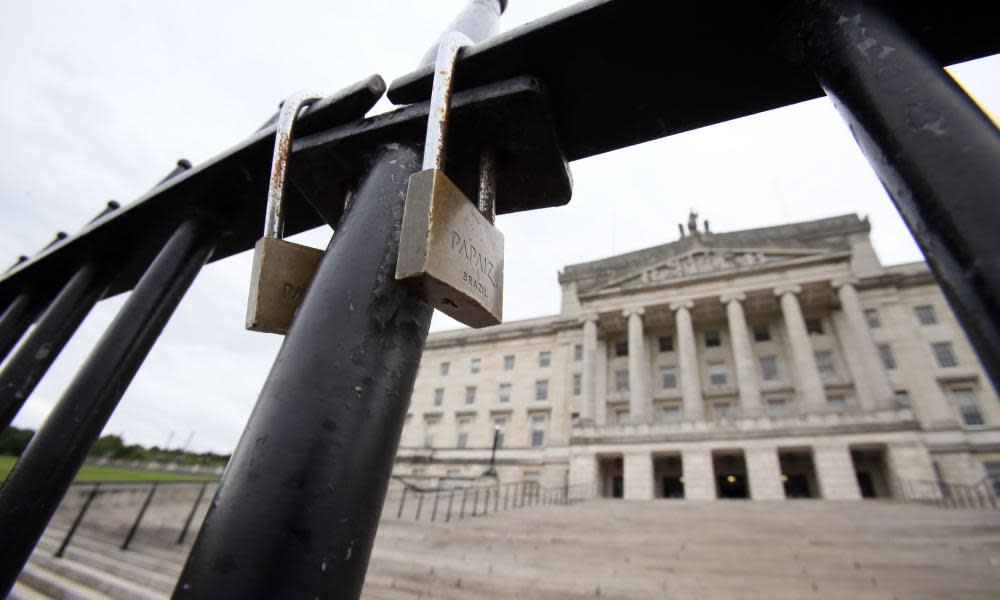Northern Ireland secretary to begin fresh power-sharing talks

The Northern Ireland secretary has announced that a fresh round of talks aimed at restoring power-sharing government to the region will start next week.
Secretary of state Karen Bradley said the discussions between all five main political parties represented in the deadlocked Stormont assembly will begin on 24 January.
Ahead of a meeting with Irish foreign minister Simon Coveney in Belfast later this morning, Bradley said that “one last opportunity to reach agreement remains.”
How might an invisible border operate?
Where does the land border lie and where are the busiest points?
Why is the Irish government so opposed to an ‘invisible border’?
A British government source on Wednesday night insisted that the secretary of state was “absolutely determined to get this over the line”.
In her statement Bradley said: “The gaps are narrow, but there are still significant differences to overcome. But based on my conversations so far, I believe it is possible to reach agreement. A short, intense set of political talks to restore the [Northern Ireland] executive will therefore commence on Wednesday 24 January 2018.
“The people of Northern Ireland cannot continue to have their public services suffer by the lack of an executive and without ministers making key policy and budget decisions.”
The political stalemate is due to the acrimonious fallout between the two main parties at Stormont – the Democratic Unionist party (DUP) and Sinn Féin.
Just over a year ago, the late deputy first minister of Northern Ireland Martin McGuinness resigned from his post triggering the collapsed of the devolved, power-sharing government.
McGuinness stood down in protest over first minister Arlene Foster’s refusal to temporarily remove herself from office while an inquiry was supposed to be held into a controversial green heating scheme.
Foster’s DUP had championed the renewable heating initiative which has cost taxpayers tens of millions of pounds.
But the collapse of the Northern Ireland executive also exposed the deep fissures within the power-sharing coalition, especially between the DUP and Sinn Féin.
The latter party was angry over the way the DUP had treated the rights of Irish language speakers in Northern Ireland.
Subsequent talks to resurrect power-sharing throughout 2017 foundered over the DUP’s refusal to agree to Sinn Féin’s demands for an Irish Language Act, which would put Gaelic on the same legal status as English in the region.
A fortnight ago the DUP and Sinn Féin appeared to be moving further apart after one of the republican party’s MPs, Barry McElduff, tweeted a video which appeared to mock an IRA sectarian atrocity from the 1970s. Following the public furore over McElduff’s actions he resigned from his seat triggering a by-election in the West Tyrone constituency where Sinn Féin won more than 50% of the vote in the last general election.
In the absence of local politicians running Northern Ireland, the last secretary of state, James Brokenshire, imposed a budget on the region back in November.
The regional budget he announced included a 5.4% increase in local health spending while public expenditure rose by 3.2%. Factoring in inflation, Brokenshire’s budget from Westminster means there were no real terms increase in expenditure.
The DUP continues to exercise considerable influence at Westminster where its 10 MPs prop up the minority Conservative government. Unionist sources said that from this position of strength in London the DUP will not be “bounced” into any new agreement with Sinn Féin.

 Yahoo News
Yahoo News 
